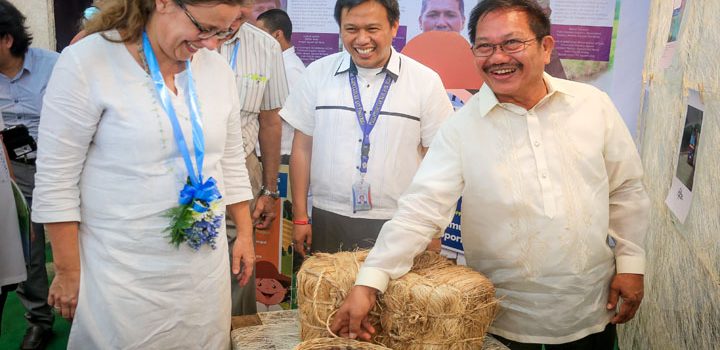The World Bank starts today, May 8, 2017, its implementation support mission to the Department of Agriculture’s Philippine Rural Development Project (DA-PRDP) with a kick-off meeting at the DA central office in Quezon City.
A team of experts from the World Bank headed by Frauke Jungbluth, the lead agriculture economist and task team leader of the mission, will attend meetings and subproject site visits around the country to primarily review the achievements of the PRDP in towards the realization of its project development objectives, as well as its Global Environment Objectives under the project-integrated Global Environment Facility grant.
The team will also discuss with the project management teams from the national, cluster and regional levels the continuing preparations for the proposed additional financing or project expansion, among other agenda.
It can be recalled that the mission in November last year earned the PRDP a satisfactory performance rating from the World Bank. In the said mission, the Monitoring and Evaluation Unit of the Project earned a highly satisfactory rating from the World Bank, a rating rarely awarded by the Bank.
At the end of the the mission, the DA hopes that it will have discussed and agreed with the World Bank and other stakeholders the solutions for technical issues that have arisen since the previous mission.
P20.3 billion approved subprojects
Agriculture Secretary Manny Piñol said that as of May 5 this year, the Project has so far approved P20.13 billion-worth of infrastructure and enterprise development subprojects supporting the country’s top commodities such as coconut, abaca, banana rubber and coffee.
For infrastructure development, the Project has approved 372 subprojects worth P19.3 billion. The enterprise development component meanwhile has 479 approved subprojects with a total cost of P829.97 million.
Piñol added that most of the approved infrastructure subprojects are farm-to-market roads (FMRs) with a total length of 1,642 kilometers. The 225 FMRs expected to benefit at least 316,000 households across the country cost 17.82 billion or 89% of the entire portfolio.
“We have already completed 31 FMRs stretching 105 kilometers, while 194 FMRs equivalent to 1,537 kilometers are at various stages of implementation and procurement,” Piñol said.
The Secretary noted that aside from the total approved infra subprojects, there are 290 pipelined subprojects amounting to P23.24 billion, which the Department hopes will be covered by its proposal for the PRDP’s expansion.
Other infrastructure development subprojects include, among others, communal irrigation systems, potable water systems and solar dryers and facilities of enterprise development subprojects such as warehouses and processing centers.
The enterprise development component meanwhile reported that it has 84 pipelined subprojects worth P923.58 million in its portfolio.
Piñol added that under the PRDP’s enterprise development component, the Project has already engaged 678 proponent groups composed of farmers or fisherfolk associations and cooperatives for its approved subprojects.
“This represents 90,775 individual farmer-beneficiaries, who are members of the groups. This does not include non-members who will benefit from our interventions,” Piñol stressed.
Mainstreaming good practices
While the basic measure of the PRDP’s performance is the subprojects’ physical-financial progress, Secretary Piñol emphasized that these are not the sole indicators of the Project’s success.
“Let’s not forget that “internally,” the PRDP was designed as a platform for bringing about change in ways of doing business across units and agencies of the DA,” Piñol said.
The Secretary said that the PRDP has introduced several good practices that have yielded positive outcomes on promoting participation, transparency and accountability.
“What could be our other option other than adopt these approaches? We have to ensure that what this Project has achieved will not be “gone with the wind” after 2020,” he said.
Piñol said that the PRDP should measure its success not only by how it has attained its project development objectives, but also by how much it has introduced changes in the agricultural governance policy.
“Mainstreaming and institutionalizing the PRDP’s good practices should then be our way forward. Advocacy work should start as early as now,” Piñol said. ### (Alladin S. Diega and Jan P. Dacumos, DA-PRDP NPCO InfoACE Unit)

